
It started with silence. For six months, Alithea Tuttle, Rocket’s vocalist, would show up to the band’s practice space in Los Angeles and say almost nothing.
She’d strap on her bass, play the songs, nod along, but never once open her mouth to sing. The voice that would eventually lead a band stayed quiet, sealed in nerves and disbelief.
“I couldn’t do it,” she says now. “Even though I’d recorded demos, even though they already knew I could sing, I just… couldn’t.” That hesitation was the first note in a story about a band that wasn’t supposed to work, but somehow already is.
“We got a rehearsal space in June and I didn’t sing in front of them until December. They had already heard my voice. I’d show up every week and we’d play, and I wouldn’t open my mouth. I felt like I’d be exposed somehow, like they’d finally realize I didn’t belong there.”
Rocket is made up of four longtime friends: Alithea Tuttle (bass, vocals), Desi Scaglione (guitar, vocals), Cooper Ladomade (drums), and Baron Rinzler (guitar). Their dynamic is more than democratic—it’s protective. “I absolutely, in a way, was mentored by the three of them,” says Tuttle. “They created a space where there were no stupid questions. Where I could be like, ‘Wait, I’m not getting a sound out of this,’ and they’d be like, ‘You’re not plugged in.’ And it wasn’t embarrassing. It was safe.”
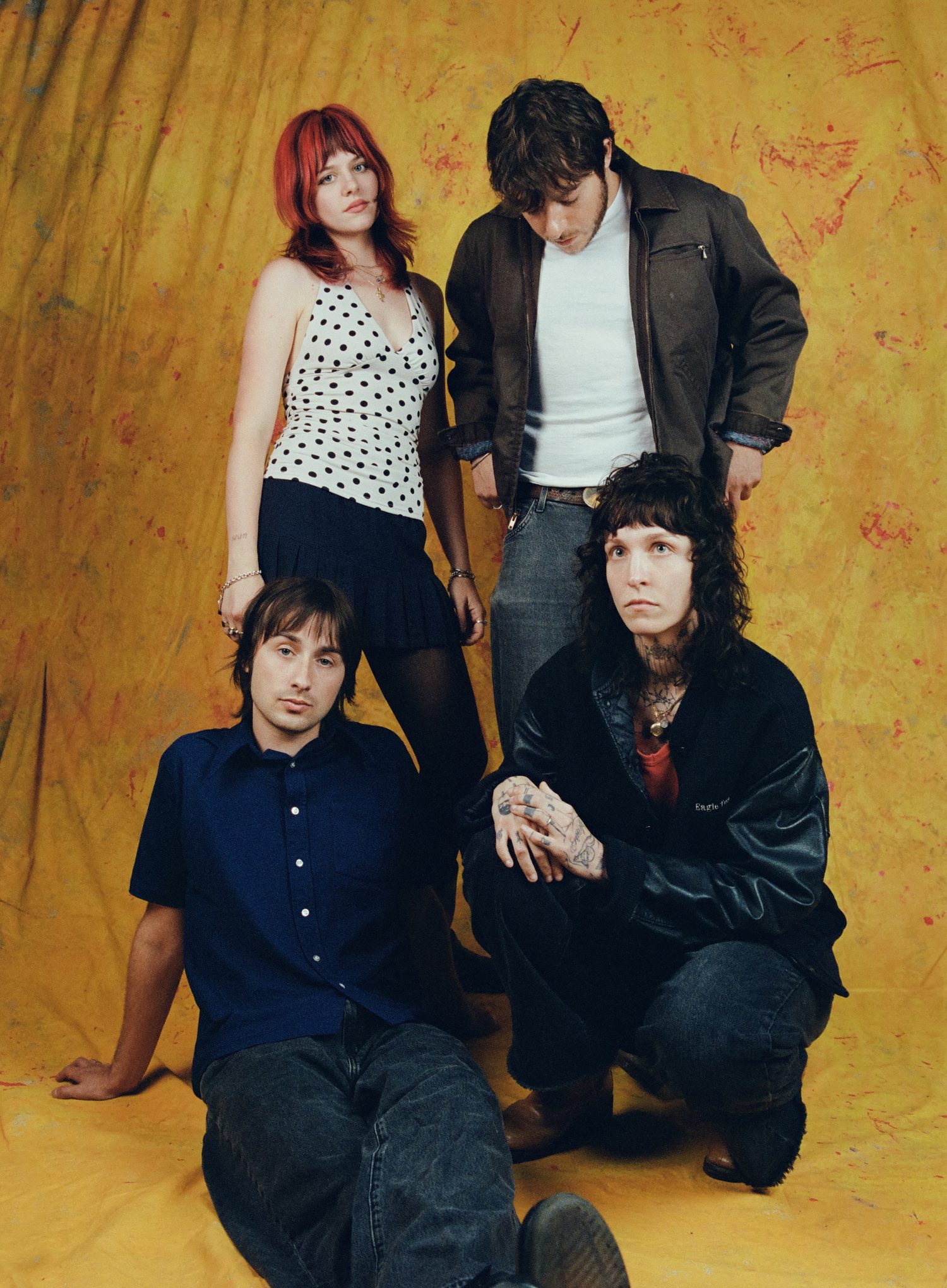
That closeness—geographic and emotional—shaped their foundation. But it didn’t erase the fear of actually starting. “I didn’t even play an instrument,” Tuttle continues. “We had all been friends, and I loved music, but I’d never done anything like this before. Baron had been playing guitar forever and had gone to school for music. And Cooper had been playing drums and a bunch of other instruments. But I never played anything. I mean, Cooper and I were in a jazz band together in middle school and I played trombone. But that was like the extent of my musical experience.”
Even as she learned to plug in her amp, then pick up the bass, then finally sing, the rest of the band never made her feel behind. “If I didn’t know these people I never would’ve started,” she says. “Because I would've been too scared to ask anything.” That rawness, that openness to learning in public, now forms the emotional center of Rocket’s music. Their songs feel uniquely both familiar and left field. Sometimes, following the recipe doesn’t create the best result. Their naivety is a superpower that’s landed them in a sonically unpredictable space.
The band formed in Los Angeles in 2021 but only released their debut EP – Versions of You – two years later, a seven-song burst of untamed energy that quickly gained traction both online and onstage. After supporting a run of their favourite bands such as Ride, Silversun Pickups, and Frank Black, they signed to legendary UK indie label Transgressive Records, alongside its US-based boutique imprint Canvasback Music.
Still, Rocket’s rise hasn’t been entirely out of nowhere. “We definitely did our time,” Scaglione says. “We had plenty of those nights where we’d drive five hours to play a show and be like, ‘Why did I say yes to this?’ Like, you show up and it’s two tickets sold. One more at the door. And you just go for it anyway.” They laugh about it now—the haunted hotel gigs in Tucson, sleeping four to a room across venues in California, the rooms so hot you think you might faint all around the country. But those shows still matter. “We were playing shows we really wanted to play early on and that was lucky,” Tuttle adds. “But we’ve also played a lot of shows where we were like, how did we get here?”
The band’s sound is blown-out and intimate, fuzzed-up but melodic. If you listen to their most popular song which was recently added to their debut EP, “Take Your Aim”, you’ll quickly understand why they often get tagged with labels like grunge, shoegaze, and 90s revival.
“I think that song is fucking rad,” chimes Ladomade, the band’s resident zen drummer who turns into an absolute engine on stage. “We were trying to figure out what song to add to the EP and I always thought something from the new record would make more sense. I'm glad it's doing really well because I think it's a sick song but I still feel like it's a little different from the EP in a good way. It's just more powerful. It just sounds so different. Probably because we recorded it in a studio, rather than in my parents' garage."
None of the four are particularly interested in genre dogma despite the labels that are constantly thrust upon them. “I don’t think any of us consider ourselves a shoegaze or a grunge band,” says Scaglione. “At the end of the day, we’re just a rock band. One that loves a lot of different kinds of music.”
This point sparks a humorous debate amongst the band as Rinzler doubles down, claiming they don’t really even listen to shoegaze at all, which gets a round of head nods from the other members. “Wait, My Bloody Valentine and Nirvana are like two of our favourite things,” laughs Scaglione. “But that's where it ends, right?” responds Tuttle. “Yeah, forget Ride and Slowdive and all those things,” Scaglione sarcastically retorts as they all start laughing at themselves.
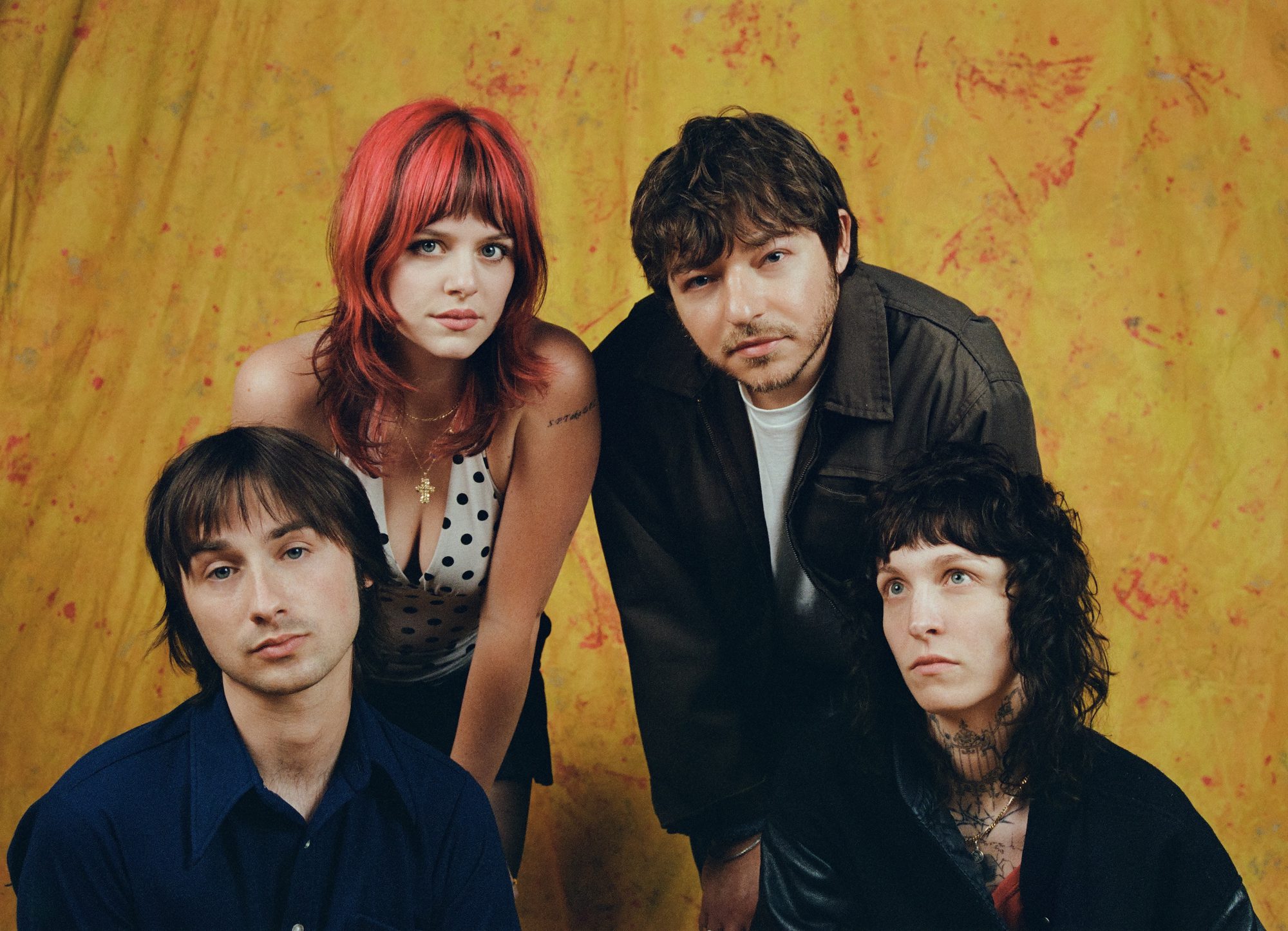
What Rocket offers, especially in a time when the barriers to entry often feel punishingly high, is proof that starting from zero is still allowed. That a band doesn’t have to be polished, or optimised, or pre-viral to be great. “I didn’t want to be just the ‘singer,’” says Tuttle. “I wanted to be a part of the band. And we made sure that’s exactly what it is.”
What they are conscious of, though, is the danger of mimicry. Especially in genres like grunge or shoegaze, where there’s a razor-thin line between homage and echo. “I think you can easily pigeonhole yourself,” says Scaglione, “and not be able to break out of those genres. Which is something we really try hard not to do. But everyone copies, even if it’s not on purpose. It’s just a thing. You grow up listening to music and it seeps into you whether you like it or not.”
That balance is intentional. “There are very specific markers,” says Tuttle. “Especially in any sort of shoegaze or grunge genre. And some of the things that make those genres what they are, we don’t do.” She mentions vocal mixing, avoiding that super-buried aesthetic that’s come back into fashion, or overused pedal tricks that telegraph their references too loudly. “Sometimes one of us would suggest something in the studio and we’d be like, yeah, that’s cool, but people are really doing that right now. So we don’t need to. Because if you lean too hard into the trend, by the time the record’s out, you might already regret it.”
For a band whose sound is often wrapped in reverb, they’re refreshingly direct about this kind of thing. Their creative rulebook isn’t about purity, it’s about longevity. “We knew we were gonna have to talk about this record all the time,” says Tuttle. “We’d have to play it for probably the rest of our lives. So it couldn’t be full of little trendy moves we don’t care about in a year. It had to be stuff we actually liked. Like really, really liked.” That practicality comes up a lot in Rocket’s orbit. Not cynicism, but sustainability. Songs that will last. Songs that make sense in five years.
Even their supposed “genre” heroes were genre-agnostic. “When we toured with Ride, they were like, ‘What are you talking about?’ when we brought up shoegaze,” Tuttle continues, “These are the guys people say invented the thing. And they’re like, ‘We don’t see ourselves that way at all.’” Rocket took that to heart. The only real lineage they claim is a desire to make music that hits hard, whatever it sounds like.
The genre is irrelevant. The feeling isn’t. “At the end of the day,” starts Rinzler, “it’s just about what we like to play. What’s fun. What feels like us.” And what feels like them—loud, fast, emotional, strange—has turned out to be what a lot of people want to hear.
But they’re not pretending the arenas don’t blow their minds, or that opening for Smashing Pumpkins this summer is just another item on the to-do list. “When we found out we all cried,” says Tuttle. “We were like, ‘They got the wrong band, but we’ll do it.’” Even now, she admits, it hasn’t really registered. “One of those shows is apparently 25,000 people. That’s not something you can be like, ‘Oh, I do that every day.’ I don’t even know when I’ve seen 25,000 people.”
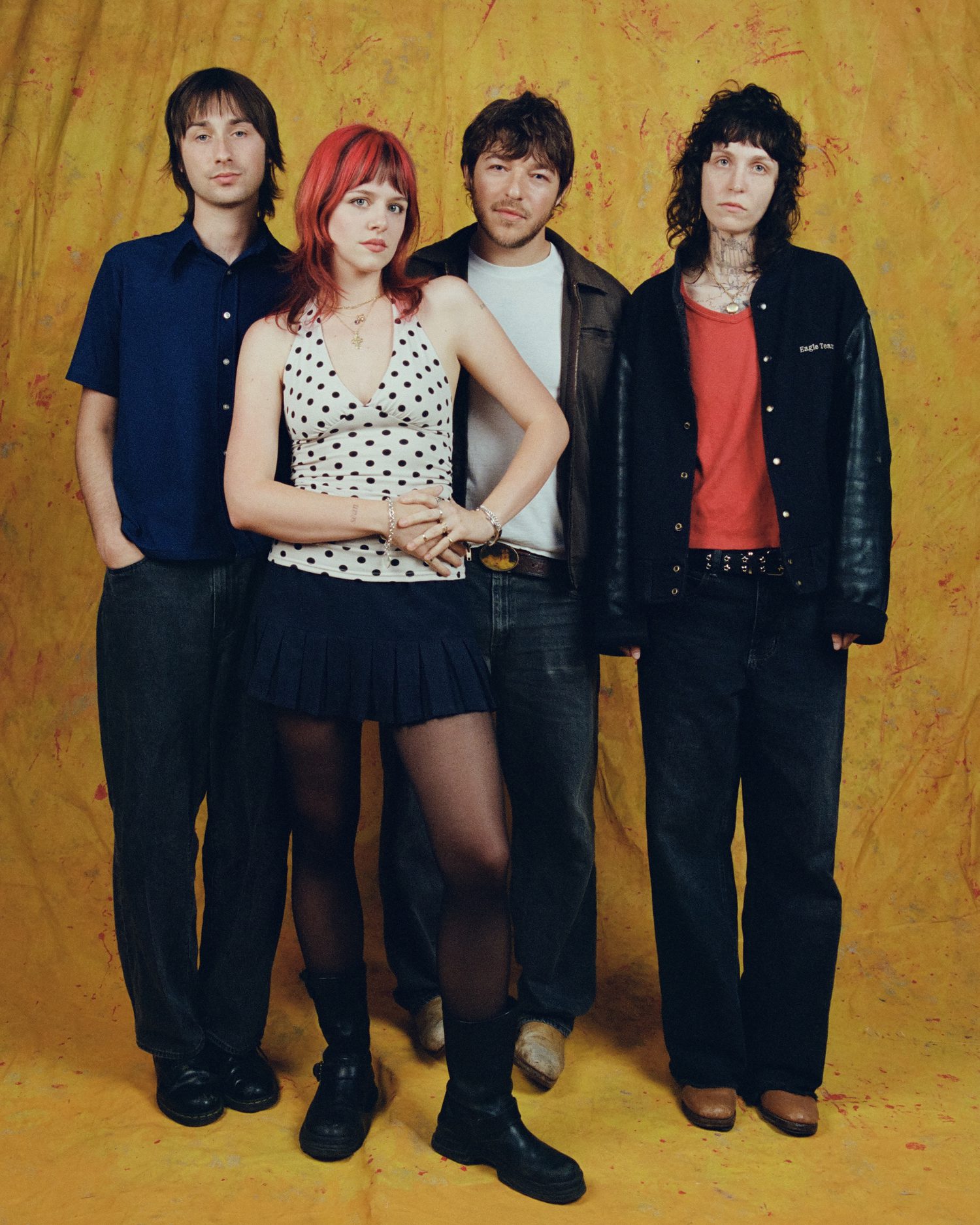
There’s a tension that runs through this moment in Rocket’s story. On one hand, it feels surreal. On the other, they’re working harder than ever. “We’re just kind of deep in that mode,” Scaglione explains. “Putting a bow on the record, finishing videos, doing interviews like this—which is great—but it’s hard to step back. I don’t think we’ll really process it until next year. Like, ‘Oh yeah, we put out our first album.’” Even when they’re home, they’re not home. The band’s debut album is still under wraps, but the music’s done, the machinery is moving, and the rest of 2025 is booked with their debut US headline tour in October.
If the EP felt like a jolt from the garage, the new record is a deliberate expansion. There’s piano now. A drum machine. A slow song. “There are moments on this one that maybe people won’t expect,” adds Tuttle. “Stuff that we didn’t even expect. But it still feels like us, just more mature. More grown.” She’s quick to add: “Not that you need piano to be mature, but… I mean, maybe it helps.”

 1 month ago
15
1 month ago
15








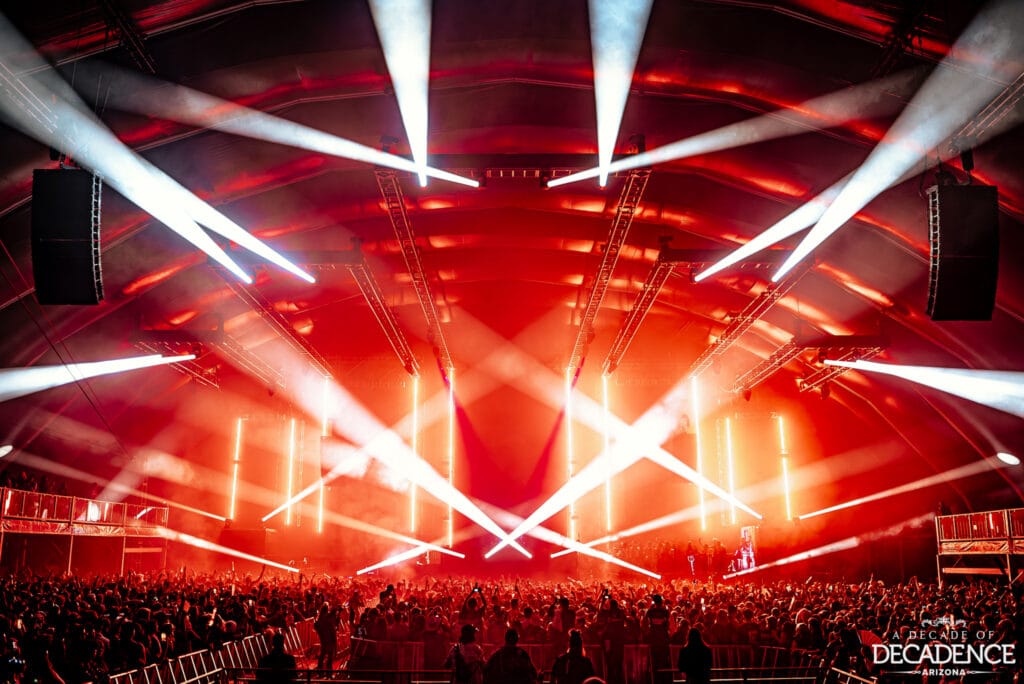
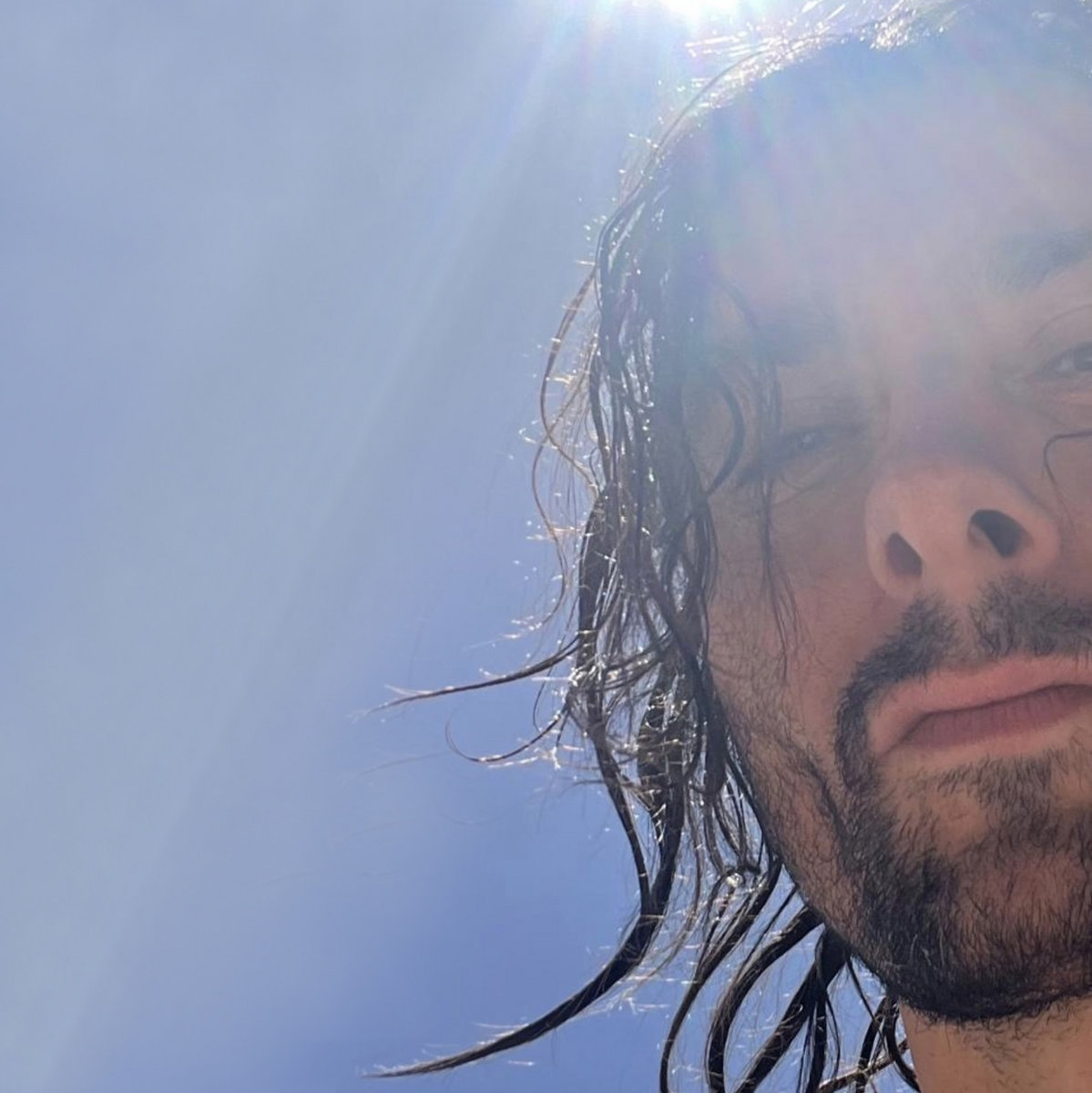
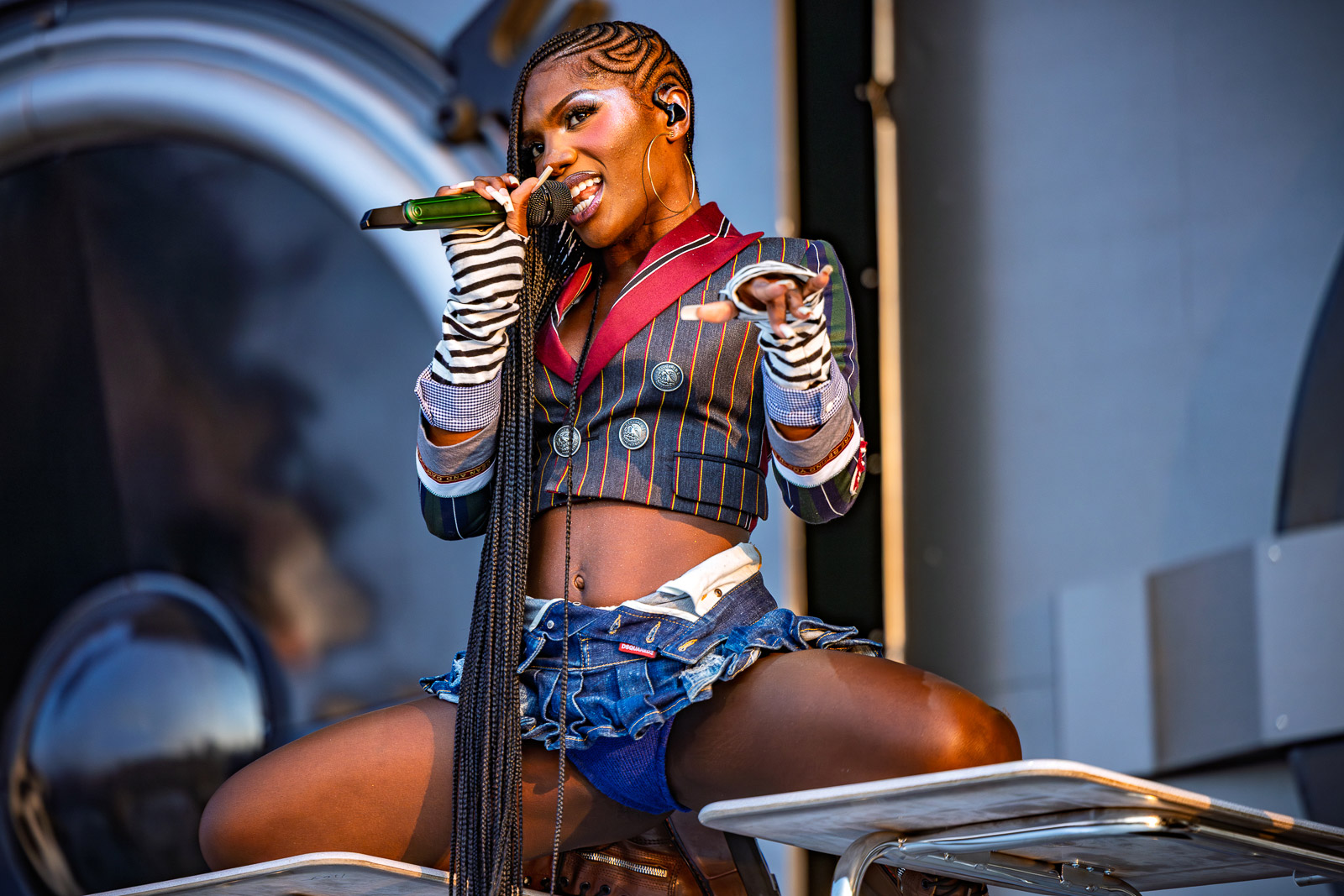







 English (US) ·
English (US) ·